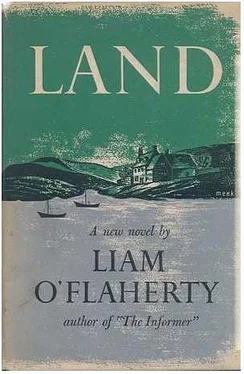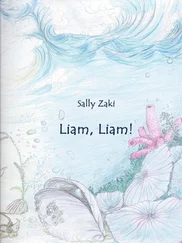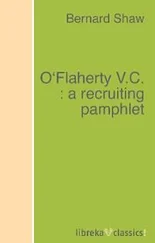Liam O'Flaherty - Land
Здесь есть возможность читать онлайн «Liam O'Flaherty - Land» весь текст электронной книги совершенно бесплатно (целиком полную версию без сокращений). В некоторых случаях можно слушать аудио, скачать через торрент в формате fb2 и присутствует краткое содержание. Город: London, Год выпуска: 2011, ISBN: 2011, Издательство: Bloomsbury Publishing, Жанр: Проза, на английском языке. Описание произведения, (предисловие) а так же отзывы посетителей доступны на портале библиотеки ЛибКат.
- Название:Land
- Автор:
- Издательство:Bloomsbury Publishing
- Жанр:
- Год:2011
- Город:London
- ISBN:9781448203888
- Рейтинг книги:3 / 5. Голосов: 1
-
Избранное:Добавить в избранное
- Отзывы:
-
Ваша оценка:
- 60
- 1
- 2
- 3
- 4
- 5
Land: краткое содержание, описание и аннотация
Предлагаем к чтению аннотацию, описание, краткое содержание или предисловие (зависит от того, что написал сам автор книги «Land»). Если вы не нашли необходимую информацию о книге — напишите в комментариях, мы постараемся отыскать её.
Land — читать онлайн бесплатно полную книгу (весь текст) целиком
Ниже представлен текст книги, разбитый по страницам. Система сохранения места последней прочитанной страницы, позволяет с удобством читать онлайн бесплатно книгу «Land», без необходимости каждый раз заново искать на чём Вы остановились. Поставьте закладку, и сможете в любой момент перейти на страницу, на которой закончили чтение.
Интервал:
Закладка:
“You needn’t have,” said Lettice passionately. “Not in the least. I feel that I’m taking part in life for the first time, since coming to Manister. Life in Paris was artificial, in spite of its exquisite culture. It was foreign to me. It was like staring at life through the window of a very expensive shop. Here I feel among my own people. I walk on my own earth and breathe my own air.”
Raoul halted again and stared at her anxiously from a distance.
“Lettice,” he said, “I have decided to join in this struggle against the landlords.”
“How wonderful!” Lettice cried, sitting forward on the sofa and clasping her hands like a delighted child. “To free humble people from oppression is the most noble of all tasks.”
“I can hardly claim that sort of nobility,” Raoul said. “One must be honest with one’s own conscience, in order to maintain clarity of thought. It is terrible to have lost faith. It is really terrible to be an educated man in our age of transition. For thousands of years, the human intellect had remained at the same level, in so far as knowledge of the universe was concerned. Then suddenly, in this astounding century of ours, fantastic discoveries are made. The steam engine, the internal combustion machine, the telegraph, the telephone and other startling innovations radically change our relation to the earth and to universal space. To-morrow, even more fantastic inventions will appear. The whole structure of our morality has come toppling about our ears as a result of this new knowledge. Our gods, who seemed omnipotent yesterday, are to-day no better than abandoned scarecrows. To-day, any street urchin with a loaded pistol can make thunder like Jove. We are all at a loss, all of us who are capable of abstract thought, overwhelmed by the avalanche of scientific discoveries. While we hysterically re-examine the idea of God, with the object of making it conform to our changed conception of the universe, our moral conscience flounders about in the vacuum created by our genius. We cry out desperately for authority, even while we smash all authority. Poor suffering humanity can endure just so much iconoclasm and anarchy. Then reason cracks. Or else, one returns to the womb for protection. What womb? The earth is the common womb of all humanity. I have returned to the womb of my ancestors. It is the land I seek and not the people. I am afraid and I seek refuge in the earth, just as a sick man climbs into his bed and draws the blankets up about his ears.”
He came over to Lettice and took her by the hand.
“Your aunt has taken me to task several times about you,” he said. “You see, this annuity that I have expires with me. I have saved nothing. If anything should happen to me …”
“Please, don’t talk about money,” Lettice interrupted. “It is completely unimportant.”
Raoul sat down beside her.
“I’ve educated you very badly,” he said. “You are just as irresponsible as I am.”
“You have taught me how to think and how to appreciate beauty,” said Lettice. “That is all that is necessary for happiness.”
“Poor Lizzie!” Raoul said. “I feel criminal about getting her involved in what must appear utterly obscene to her. Now we must go to bed. I’m very tired.”
He yawned, got to his feet and stretched his arms above his head. Then he suddenly got excited once more.
“Amazing fellow, that priest,” he cried, as he stared at the floor with his fingers to his beard. “I envy him. He was a very normal parish priest until he became involved by accident in a stupid insurrection twelve years ago. His brother, a colonel in the American army, came to Ireland after the Civil War, in order to take part in the insurrection. Father Kelly was parish priest of the district where his brother, the colonel, was about to attack a British military barracks. He went out to the assembly point of the insurgents, trying to persuade his brother to abandon the hopeless enterprise. While the two brothers were arguing passionately, the British carried out a surprise attack on the insurgent camp. The insurgents fled. Father Kelly went with them. As soon as the firing started, he told me, he forgot that he was a priest and opposed to rebellion against authority on moral grounds. He only knew that the same blood flowed through his veins as through those of his brother and of the other insurgents. When the colonel was killed in a raid, Father Francis took command of what troops remained. Finally, he was captured and pardoned because of his cloth. His superiors deprived him of his parish and of the right to administer the sacraments. He has remained fixed ever since in that single act of revolt. He can neither advance beyond it, nor regain the state of mind that preceded it. He wanders about the country like a lost soul, trying to rouse the people to a repetition of his own tragedy. It really was a tragedy and yet I envy him his fixity of thought.”
“No, Father,” Lettice said gently, as she got to her feet. “It was not a tragedy. He learned to love the people that day when the British attacked the insurgent camp.”
Raoul stared at her in surprise.
“And O’Dwyer?” he said after a long pause. “Do you think he, too, loves the people?”
“I am certain of it,” Lettice said.
Raoul sighed deeply and said in a dejected tone:
“How wonderful it must be to feel noble!”
Lettice threw her arms impulsively about his neck and whispered:
“To me, everything you do and everything you say is noble and beautiful.”
Raoul kissed her and said tenderly:
“Thank you, child. You are the apple of my eye.”
After she had got into bed and put out the light, she lay awake for a long time in excited thought. In the darkness, with the soft music of the sea coming in a constant rhythm through the open window, she felt wonderfully happy. It was like being taken in a dream to an enchanted place and waiting for the secret of the enchantment to be disclosed.
All that she had hitherto found beautiful in life now appeared to have been merely a prelude to this passionate ecstasy of waiting, as each urgent beat of her heart brought life closer with the key of love.
Chapter VIII
Fenton poured whisky into his glass, drank eagerly and shuddered. He had drunk a good deal since finishing his lunch an hour previously. He was now quite tipsy without being at all aware of it. He felt even more depressed than before he began to drink. The whisky made him brood still more feverishly on Butcher’s visit of the previous night and the unpleasant incident at Sram during the forenoon.
He sat perfectly still in an old leather-covered armchair by the window of his parlour, hoping that this last drink would have the desired effect of putting his mind at ease. Nothing of the sort happened. Irritated by his continued failure, he began to tap the arm of the chair nervously with the tips of his fingers. Then he suddenly took away his fingers and stared at the chair arm with a grimace of disgust. The used leather was torn. His fingers had come in contact with the horsehair stuffing. It was like touching something dead and corrupt. He jumped to his feet and glanced around the room, at the shabby carpet, at the dirty pieces of furniture, at the spider’s web in a corner of the ceiling. In his present mood, the condition of the room appeared degrading to him.
“Cursed place!” he cried aloud. “It’s killing me.”
Pulling at the collar of his uniform, to relieve the shortness of breath caused by his fit of temper, he put his head out the window and breathed deeply. The Royal Hotel, in which he had rooms, gave directly on to the river that flowed through the town of Clash. To the right, a stone bridge of considerable beauty spanned the river. Two women were quarrelling at the very centre of the bridge, indifferent to a heavy shower of rain that had just begun to fall. One of the women was enormously fat. She had a basket of fish poised on her head, above a coiled white cloth. With her bare arms stretched out to their full length, to defend herself against attack as well as to preserve the balance of her load, she circled slowly back and forth with the grace of a juggler. A thin woman with bedraggled hair, dressed in a skimpy black shawl, opposed the fat one. The thin woman, uttering fierce cries like a robbed bird, made sudden attacks, now from one direction, now from another, with bowed head, always falling short of her objective. Except for the two women and a solitary red cart, that rumbled over the cobblestones on the far side of the bridge behind a black horse, there was nobody in movement. Groups of loafers, in spite of the rain, leaned against the houses and against the walls of the river. The town square opened off the far side of the bridge. The principal shops and public buildings were there. The largest of them, formerly the Customs House, had collapsed. All that remained of it was a solitary chimney, rising gaunt and naked from the great heap of rubble, tipped slightly to one side at the very top, like the stripped skeleton of a giraffe. In the centre of the square there was a marble block, newly erected, inscribed with gold lettering, surmounted by the statue of an English general on horse-back. The head and left arm of the general had fallen. He had a drawn sword in his right hand, raised high above his headless trunk in grotesque belligerence. To the left, where the river debouched into the sea, the atmosphere of decay was still more in evidence. A row of buildings, which looked foreign owing to their age and imposing structure, lay completely in ruins along the river wall. They had been warehouses when Clash traded with Imperial Spain, at the height of the St. George family’s feudal power. Smoke rose from one of these ruined warehouses. Ragged clothes were hung out on a string across a gap in the upper part of the front wall. Evicted tenants from the countryside had taken shelter there.
Читать дальшеИнтервал:
Закладка:
Похожие книги на «Land»
Представляем Вашему вниманию похожие книги на «Land» списком для выбора. Мы отобрали схожую по названию и смыслу литературу в надежде предоставить читателям больше вариантов отыскать новые, интересные, ещё непрочитанные произведения.
Обсуждение, отзывы о книге «Land» и просто собственные мнения читателей. Оставьте ваши комментарии, напишите, что Вы думаете о произведении, его смысле или главных героях. Укажите что конкретно понравилось, а что нет, и почему Вы так считаете.












